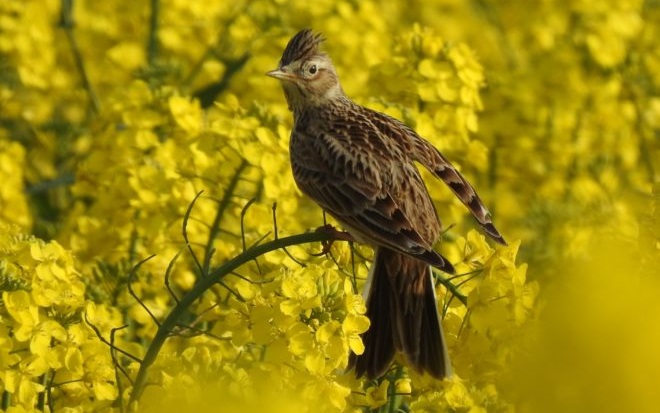
Thirty one hectares of downland in the South Downs has been signed over for nature recovery as part of a 'landmark' biodiversity net gain (BNG) deal.
The agreement has been signed by the national park's authority and Iford Estate, marking the first step towards creating large new areas of habitat for wildlife in the area.
Thirty one hectares of land – almost 100 football pitches – at Iford Estate, in East Sussex, have been signed over for BNG provision.
The large swathe of downland is the first to appear on the National Park Authority’s register of land that is formally dedicated for BNG.
It comes as new planning reforms will soon make BNG a legal requirement for developers in England.
From January next year, developers will be required to deliver 10% BNG when building new housing, industrial or commercial developments.
This means by law they must deliver a net positive for the local environment, for example by creating new habitats and green spaces.
The nature restoration can happen on-site or off-site at locations such as the Iford Estate, or other potential areas that could be earmarked in the national park in the future.
The ‘Iford Biodiversity Project’ will ultimately see about 800ha of land permanently dedicated to nature recovery, involving the generation of about 3,000 biodiversity units.
The plan involves the creation of floodplain grazing marsh to provide habitat for breeding and overwintering waders, species-rich grassland for rare plants, insects and mammals, as well as tree planting on parts of the farm to link up with existing woodland.
The National Park Authority has called on other major farmers and landowners to follow suit and dedicate areas for BNG.
Its brokerage service, officially called “ReNature Credits”, aims to connect landowners and developers to create areas of land for nature recovery.
Nick Heasman, policy manager at the national park, said: “This innovative scheme at Iford will kickstart a regional recovery that will benefit both nature and local communities.
“As a national park covering 1,600km2 and with over 1,000 different landowners, we can identify the very best areas for biodiversity restoration and ensure habitat connectivity.
"This innovative scheme will ensure that the sustainable development that does take place over the next decade will benefit nature and people locally, funnelling private investment into the places where it’s needed most."
Iford Estate manager Ben Taylor added: “Our scheme draws on the extensive habitat and species surveys conducted over the past few years, as well as historical mapping to determine land use patterns, soil sampling and hydrological assessments.
“We will increase the diversity of species over the whole estate, whilst still retaining food production as the principal land use on the most fertile land.”
